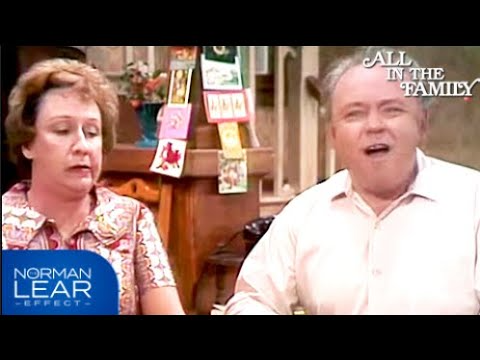
In the golden era of American television, few shows left as indelible a mark on the cultural landscape as All in the Family. Premiering on January 12, 1971, on CBS, this bold and controversial sitcom redefined what network television could be. Created by Norman Lear and Bud Yorkin, All in the Family not only entertained millions—it sparked national conversations and challenged the very fabric of American domestic life portrayed on screen.
At the heart of the series was Archie Bunker, played masterfully by Carroll O’Connor. A working-class World War II veteran with conservative, often bigoted views, Archie became both a source of comedy and a mirror to the generational and ideological divides of the time. Opposite him was his kind but naïve wife Edith (Jean Stapleton), his feminist daughter Gloria (Sally Struthers), and her liberal husband Mike “Meathead” Stivic (Rob Reiner).
Unlike its predecessors, All in the Family tackled controversial topics head-on—racism, sexism, war, religion, and homosexuality—subjects that were once considered taboo for primetime television. The show’s raw honesty and willingness to depict uncomfortable truths earned it both acclaim and criticism, but undeniably forced viewers to confront issues within their own homes and communities.
Critically, the show was a juggernaut. It held the number one spot in the Nielsen ratings for five consecutive years (1971–1976), won four consecutive Emmy Awards for Outstanding Comedy Series, and became a springboard for several successful spin-offs, including Maude, The Jeffersons, and Good Times. Its legacy lives on in the DNA of countless sitcoms that followed, from Roseanne to Modern Family.
“All in the Family didn’t just change what we watch—it changed how we watch,” said TV historian Robert J. Thompson. “It opened the floodgates for socially conscious storytelling in a format previously seen as pure escapism.”
Though its language and portrayals might be jarring to today’s audiences, All in the Family remains a landmark in television history—a show that dared to reflect the real world, one living room argument at a time.
